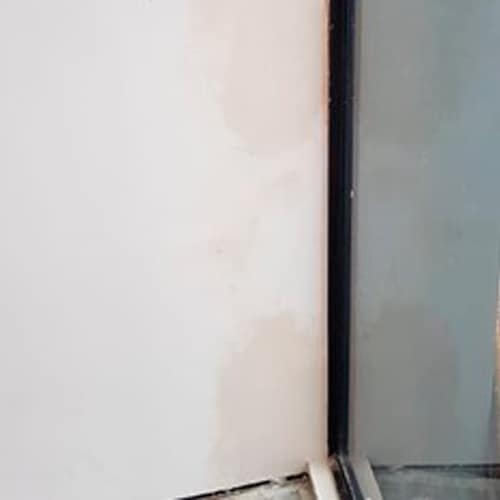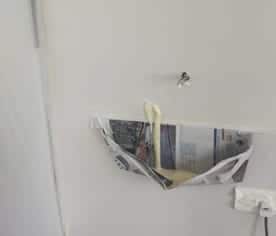Rainwater and moisture can penetrate concrete structures and enter the building foundation in serve cases. Wall leakage issues are mostly caused by moisture seepage through cracks of the wall. If the moisture has been stored in the concrete wall for a long time, it will cause a leak and with greater issues that may surfaces such as damage to the concrete slabs and walls. Water pressure can push through the cracks, and the climate changes in temperature will shrink and expand the structural cracks. The worst scenario will affect the building structure thus we have come out with a solution to wall water leakage.
Water leakage in the wall or building foundation should be applied to both the exterior and the interior of the leak area. Water leakage through the walls can cause severe structural issues that are difficult and costly to repair if it is not detected early.
The cause of a wall water leakage could be due to poor construction or lack of maintenance over time. With heavy rainfall in Singapore, wall water leakage could occur which is caused by rainwater collected at the grout joint seeping through the damaged grouting between the wall and floor of the exterior wall into the interior wall. Homeowners find waterproofing exterior walls are not necessary and neglect doing them, but they are a good way to prevent all these serious water damages and structural damage which will be more difficult to repair in the future.
The most common signs of water leakage in the wall will be cracks on walls and floors. A yellowish watermark stain appears on the wall, droplets of moisture, dampness of the wall, bubbling of the wall or peeling paintwork, and pop-out concrete. They will occur in the ceiling, toilet, open balcony, and rooftop. Due to corrosion, water can penetrate through micro-cracks and follow with the growth of fungi and other allergens that create health risks to you and your family members.
Regular inspection to check for potential leakage is essential in our tropical climate. After a leak problem has been identified, there is some approach to resolve the leak. Coat of waterproof sealant, grouting the joint, and injecting polyurethane grouting, are some solutions to repair them.
Applying waterproofing sealant coating is a process that involves the placement of a bonded layer of chemically reactive mortar agent, on the concrete interior surface experiencing water leakage. All coating and reactive agents require the substrate to be free of permeating water before installation. The chemical grouting, such as polyurethane injection may be first performed to stop active water leakage before coating or reactive mortar agent installation. Waterproof coatings must be resisted both the effects of internal and external water-vapor pressure. These coating can be vapor permeable and vapor barriers.
Some waterproof coatings may be a chemical reactive agent with the existing concrete. This reactive treatment applies to damp concrete substrates that can be formulated to react with cement, creating non-soluble, silicate-based crystal growth in pore space within the concrete matrix. These crystal-like growths can plug on micro-voids and pores and fine cracks in the concrete, creating a water-resistant barrier.
Polyurethane PU Injection is the high technology to use for chemical grouting. Injection techniques involve the placement of reactive and active resins, polymer, into the crack and joint on the concrete wall. A waterproofing grout can fill up the wall, crack lines, and joints to solidify the wall that causes the leaking point of water origin. This method requires no hacking, no dust, hassle-free for busy homeowners.
SWC Construction is the best professional waterproofing contractor in waterproofing repair of interior and external walls leakage. We provide waterproofing of walls and leakage repair services to prevent and stop water seepages into your home or property. Call Us now to find out more about how we can provide you with a professional solution to resolve the wall leakage in your home.




